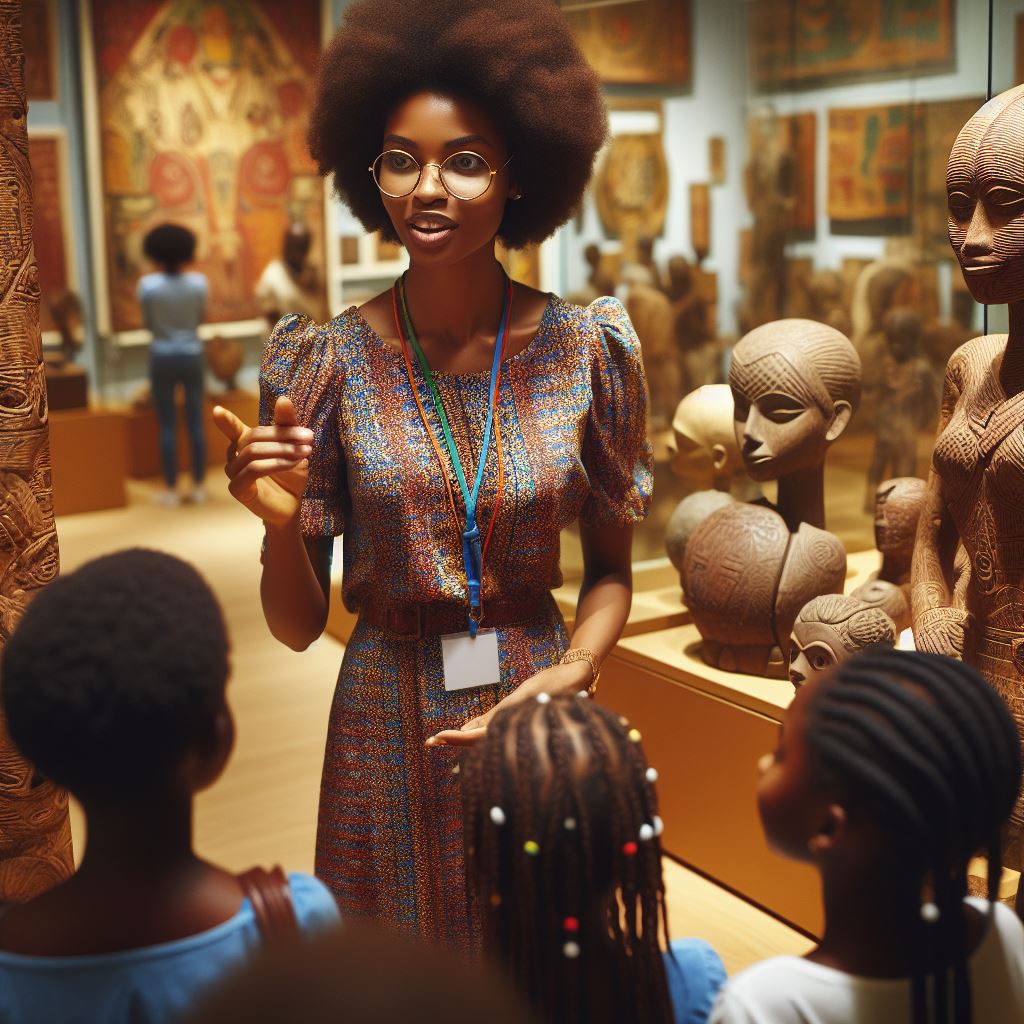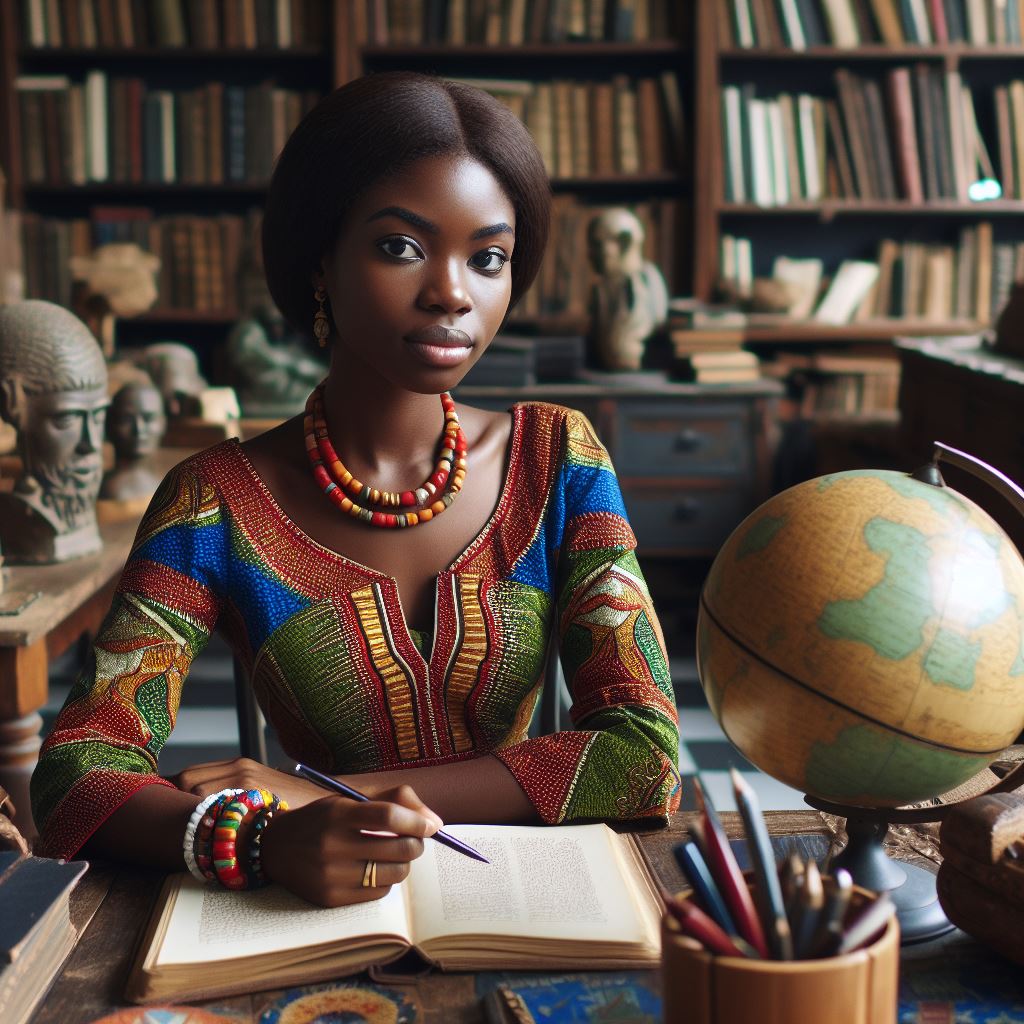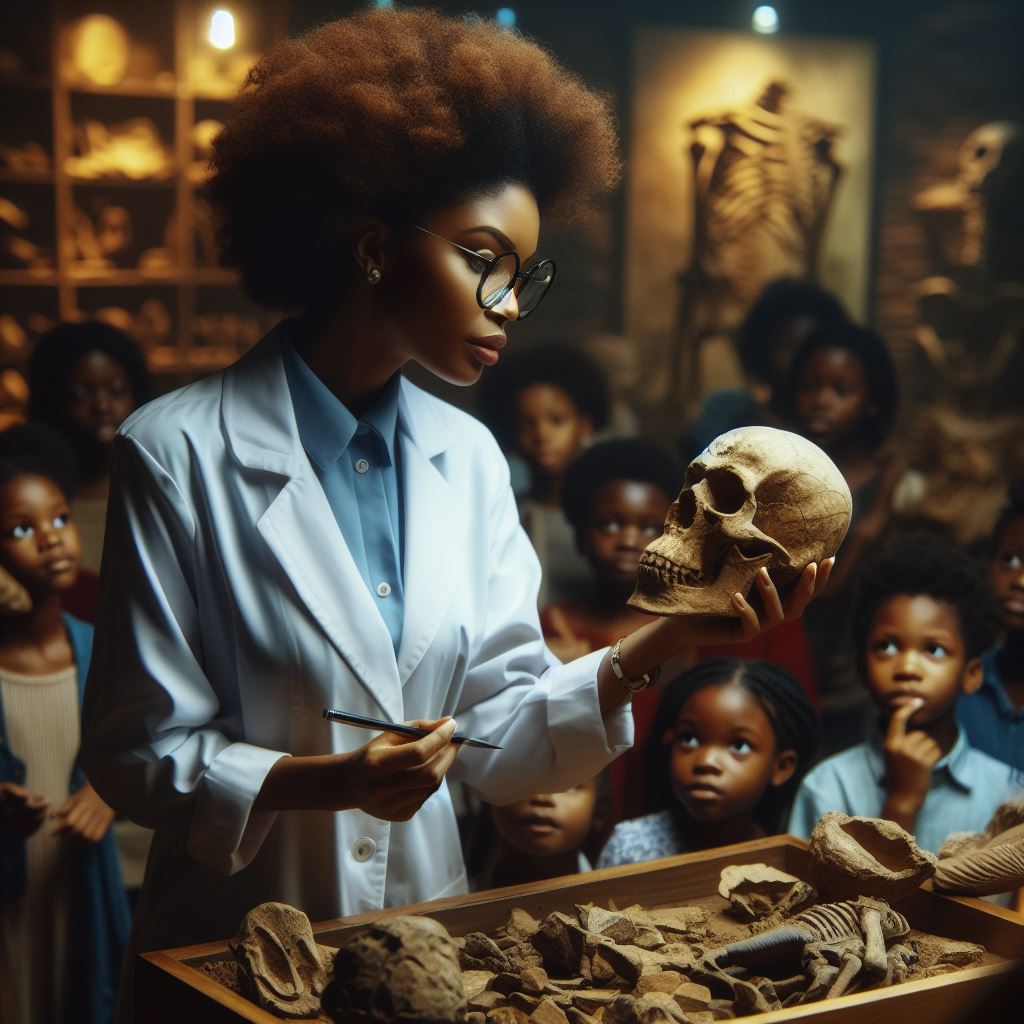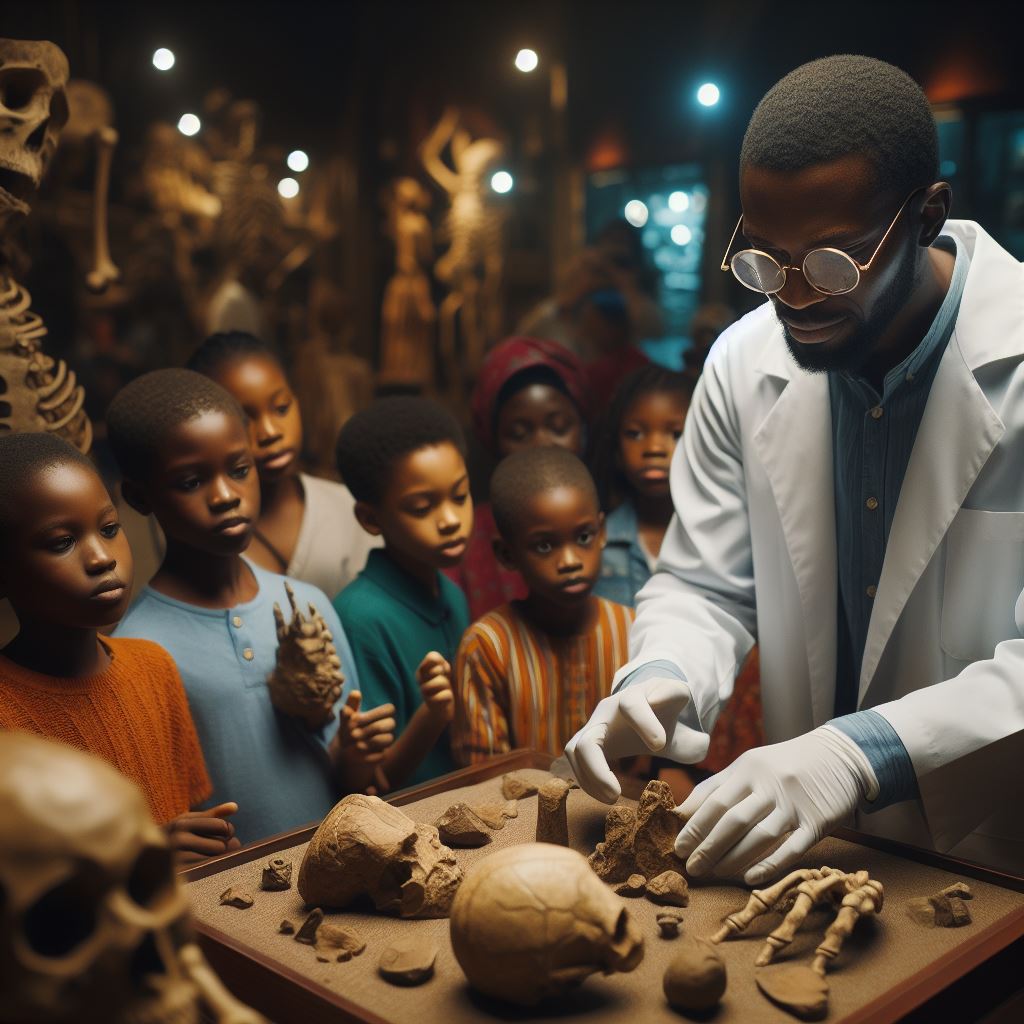Introduction
Defining Anthropology
Anthropology, the multifaceted study of humanity, encompasses the examination of societies, cultures, and their development across time and space.
Significance of Anthropology in Cultural Study
Anthropology stands as a crucial discipline in the realm of cultural study, offering a nuanced understanding of the intricacies of human societies.
Understanding Nigerian Culture and Society
Nigeria, Africa’s most populous country, is a vibrant mosaic of diverse ethnicities, languages, traditions, and belief systems.
Anthropology’s Role in Nigeria
Anthropology plays a multifaceted role in Nigeria, serving as a tool for unraveling the complexities of its diverse cultures and societal structures.
Cultural Diversity in Nigeria
Nigeria’s cultural landscape is characterized by a rich tapestry of over 250 ethnic groups, each with its unique customs, traditions, and practices.
Anthropological Research in Nigeria
Anthropologists engage in extensive fieldwork within Nigerian communities, employing ethnographic methods to study social interactions, rituals, and belief systems.
Preservation of Cultural Heritage
Anthropology contributes to the preservation of Nigeria’s cultural heritage by documenting oral histories, traditional practices, and artifacts.
Cultural Adaptation and Change
Anthropological studies track the processes of cultural adaptation and change in Nigeria, examining how traditions evolve amidst modernization and globalization.
Impact on Social Structures
Anthropology sheds light on the dynamics of Nigerian social structures, including kinship systems, power relations, and patterns of social organization.
Gender Dynamics in Nigerian Society
Anthropological research elucidates the complex interplay of gender roles, norms, and identities within Nigerian society, highlighting issues of equality and empowerment.
Health and Healing Practices
Anthropologists investigate traditional healing practices, indigenous medical systems, and perceptions of health and illness in Nigerian communities.
Education and Knowledge Transmission
Anthropology explores the transmission of knowledge, values, and cultural practices through formal education, informal learning, and oral traditions.
Conflict Resolution and Peacebuilding
Anthropological insights contribute to conflict resolution efforts and peacebuilding initiatives by fostering cross-cultural understanding and dialogue.
Challenges and Opportunities
Anthropologists confront challenges such as cultural erosion, social inequality, and environmental degradation, while also identifying opportunities for cultural revitalization and sustainable development.
Generally, anthropology serves as a vital tool for understanding, preserving, and celebrating the rich cultural heritage of Nigeria, while also addressing contemporary challenges and opportunities facing its diverse society.
Historical perspective of anthropology in Nigeria
Anthropology, the study of human societies and cultures, has significantly shaped Nigerian culture and society since its inception.
In this section, we delve into the historical perspective of anthropology in Nigeria, highlighting its origins, key anthropologists, and evolution over time.
Origins of Anthropology in Nigeria
Anthropology in Nigeria traces its roots back to the colonial era when European scholars began documenting indigenous cultures.
During this period, anthropologists like Northcote Thomas conducted extensive ethnographic studies, providing valuable insights into Nigerian traditions and customs.
Key Anthropologists
Several notable anthropologists have contributed to the understanding of Nigerian culture. One such figure is Professor M. A. Fashole-Luke, whose research focused on the dynamics of social change among Nigerian communities.
Additionally, the works of Professor Daryll Forde shed light on the complex kinship systems prevalent in Nigerian societies.
Evolution of Anthropology
Over time, anthropology in Nigeria has evolved to embrace interdisciplinary approaches and indigenous perspectives. Early anthropological studies often reflected colonial biases, but contemporary scholars strive for inclusivity and cultural sensitivity.
The discipline has diversified to encompass various subfields, including medical anthropology, urban anthropology, and gender studies.
Transition to Indigenous Perspectives
A significant shift in Nigerian anthropology occurred with the emergence of indigenous scholars who challenged Western-centric narratives.
Pioneers like Professor I. A. Akinjogbin advocated for decolonizing research methodologies and promoting indigenous knowledge systems. Their efforts have led to a more balanced portrayal of Nigerian cultures and traditions.
Impact on Nigerian Society
The influence of anthropology extends beyond academic circles, shaping public policy and social discourse in Nigeria. Anthropological insights have informed development initiatives, cultural preservation efforts, and efforts to address social inequalities.
By understanding the complexities of Nigerian society, policymakers can formulate more effective strategies for sustainable development and cultural preservation.
Challenges and Future Directions
Despite its contributions, Nigerian anthropology faces challenges such as funding constraints and ethnocentric biases. Moving forward, the discipline must prioritize collaboration with local communities and integrate traditional knowledge into research methodologies.
By embracing diversity and fostering dialogue, Nigerian anthropology can continue to enrich our understanding of human culture and society.
In short, anthropology has played a pivotal role in shaping Nigerian culture and society. From its colonial origins to its contemporary evolution, the discipline has provided invaluable insights into the diversity and richness of Nigerian traditions.
As we navigate the complexities of the modern world, anthropology remains a vital tool for understanding and preserving Nigeria’s cultural heritage.
Read: How to Apply for Communication Arts Programs
Contribution of anthropology to understanding Nigerian traditions
Anthropology, the study of human societies and cultures, has played a pivotal role in unraveling the rich tapestry of Nigerian traditions.
Through meticulous fieldwork and research, anthropologists have delved into the diverse cultural practices of various ethnic groups across the country.
Exploring Cultural Diversity
Anthropologists have immersed themselves in the customs, rituals, and beliefs of Nigerian ethnic communities, shedding light on their unique traditions.
From the Hausa-Fulani in the north to the Yoruba in the southwest and the Igbo in the southeast, each group boasts a distinct cultural heritage.
Preserving Traditional Practices
One of anthropology’s significant contributions is its role in preserving and documenting traditional practices that are at risk of being lost in the face of modernization.
By recording oral histories, documenting ceremonies, and studying material culture, anthropologists ensure that these invaluable aspects of Nigerian heritage are safeguarded for future generations.
The Role of Anthropology in Cultural Heritage Preservation
Anthropological research has had a profound impact on cultural heritage preservation in Nigeria. By documenting and understanding the significance of cultural practices, anthropologists help communities appreciate the importance of preserving their traditions.
This awareness fosters efforts to safeguard cultural heritage from erosion and extinction.
Community Engagement and Empowerment
Anthropologists often engage directly with communities, collaborating with them to document and revitalize traditional practices.
This participatory approach empowers communities to take ownership of their cultural heritage, strengthening their sense of identity and pride in their traditions.
Informing Policy and Development
Anthropological insights also inform policies aimed at cultural preservation and sustainable development.
By understanding the social dynamics and cultural intricacies of Nigerian societies, policymakers can craft more effective strategies that respect and protect traditional practices while promoting progress.
Challenges and Opportunities
However, anthropology faces challenges in its efforts to understand and preserve Nigerian traditions. Rapid urbanization, globalization, and socio-political changes pose threats to traditional ways of life.
Yet, these challenges also present opportunities for anthropologists to adapt their methodologies and collaborate with communities to find innovative solutions.
In summary, anthropology has been instrumental in unraveling the rich cultural tapestry of Nigeria and preserving its diverse traditions.
Through meticulous research, community engagement, and policy advocacy, anthropologists contribute to the appreciation and safeguarding of Nigerian cultural heritage for generations to come.
Read: Introduction to African and Asian Studies in Nigeria
Anthropology Driving Social Policies
Anthropological discoveries in Nigeria have significantly steered the formulation of social policies. These findings offer crucial insights into the intricate fabric of Nigerian society.
By understanding cultural nuances, policymakers tailor interventions more effectively. For instance, anthropological studies have revealed indigenous governance structures.
These insights inform policies that integrate traditional authorities into modern governance systems. Additionally, anthropologists shed light on healthcare beliefs and practices.
This understanding enables policymakers to design healthcare initiatives that resonate with local communities. Furthermore, anthropological research informs education policies.
By studying local educational systems and beliefs, policymakers develop strategies to enhance educational access and quality.
Anthropologists as Agents of Change
Anthropologists play a pivotal role in fostering social change in Nigeria. They act as intermediaries between communities and policymakers. By advocating for marginalized voices, anthropologists ensure inclusivity in policy formulation.
Moreover, they facilitate dialogue between different societal groups, fostering understanding and cooperation. Anthropologists also conduct research to address societal issues.
For instance, they study the impact of urbanization on traditional livelihoods, advocating for sustainable development practices. Furthermore, anthropologists engage in grassroots initiatives to empower communities.
Through capacity-building programs, they equip locals with skills to address challenges independently.
Anthropology Shaping Social Movements
Anthropology has been instrumental in shaping social movements and advocacy efforts in Nigeria. For instance, anthropological research on gender roles has fueled women’s rights movements.
By challenging traditional norms, these movements advocate for gender equality and empowerment. Additionally, anthropologists study ethnic relations, informing movements for ethnic harmony and inclusivity.
By highlighting shared cultural values, these movements promote unity amidst diversity. Furthermore, anthropology informs environmental activism in Nigeria.
By studying indigenous ecological knowledge, activists advocate for sustainable environmental practices.
In essence, Anthropology serves as a catalyst for social change and development in Nigeria. Through empirical research and advocacy, anthropologists contribute to policy formulation and societal transformation.
By bridging cultural divides and amplifying marginalized voices, anthropology promotes inclusivity and progress. In a country as diverse as Nigeria, anthropology’s role in shaping policies, fostering social change, and driving advocacy efforts is indispensable.
As Nigeria navigates various socio-economic challenges, anthropology continues to offer invaluable insights and solutions for a more equitable and resilient society.
Read: Famous Nigerian Alumni of Communication Arts Programs

Impact of anthropology on governance and policy-making
In Nigeria, anthropology has played a significant role in shaping governance and policy-making processes. Anthropological research has provided valuable insights that have informed government policies and decision-making in various sectors.
Role of Anthropologists as Cultural Consultants
Anthropologists serve as cultural consultants and advisors to governmental bodies, helping them navigate the complexities of Nigerian society.
Their expertise in understanding cultural norms, traditions, and practices enables policymakers to design more effective and culturally sensitive initiatives.
Transform Your Career with Expert Guidance
Get personalized mentorship consulting that’s tailored to your unique path. Our expert advice is actionable and exclusive.
Get StartedInfluence on Education
Anthropology has influenced education policies in Nigeria by highlighting the importance of incorporating indigenous knowledge systems into the curriculum.
This has led to the promotion of local languages, traditional practices, and histories in educational settings, contributing to a more inclusive and culturally relevant learning environment.
Impact on Healthcare
Anthropological research has also had a profound impact on healthcare practices in Nigeria.
By studying local beliefs, attitudes, and behaviors related to health and illness, anthropologists have helped healthcare providers develop more contextually appropriate interventions.
This has improved access to healthcare services and fostered better health outcomes among diverse populations.
Contribution to Community Development
Anthropology plays a crucial role in community development initiatives by providing insights into local dynamics and social structures.
Anthropologists work closely with communities to identify their needs, priorities, and resources, ensuring that development projects are culturally sensitive and sustainable.
This approach fosters meaningful community engagement and empowerment, enabling residents to actively participate in and benefit from development initiatives.
In a nutshell, the impact of anthropology on governance and policy-making in Nigeria cannot be overstated.
Anthropological research has enriched government decision-making processes, influenced key sectors such as education and healthcare, and contributed to more inclusive and sustainable community development efforts.
By integrating anthropological perspectives into policy development and implementation, Nigeria can better address the diverse needs and realities of its population, fostering a more equitable and culturally vibrant society.
Read: Digital Media Trends in Communication Arts
You Might Also Like: Funding and Grants for Nigerian Fashion Startups
Anthropology: Shaping Nigerian Cultural Identity
Anthropology, the study of human societies and cultures, has played a pivotal role in shaping Nigerian cultural identity and national consciousness.
Through ethnographic research and analysis, anthropologists have delved deep into the rich tapestry of Nigerian culture, unraveling its complexities and nuances.
Understanding Diversity Through Anthropology
Anthropologists have contributed significantly to understanding Nigeria’s diverse cultural landscape. By immersing themselves in various communities across the country, they have documented the customs, traditions, and belief systems that define each ethnic group.
Through their research, they have shed light on the similarities and differences that exist among different Nigerian tribes, fostering a greater appreciation for the nation’s cultural diversity.
Promoting Intercultural Understanding
One of the fundamental roles of anthropology in Nigeria is promoting intercultural understanding and tolerance.
Through their studies, anthropologists have highlighted the interconnectedness of Nigerian cultures, emphasizing commonalities rather than differences.
By fostering empathy and respect for diverse cultural practices, anthropology has played a crucial role in bridging divides and fostering a sense of unity among Nigerians.
Bridging Cultural Divides
Anthropology has served as a bridge between disparate cultural groups in Nigeria. Through their research, anthropologists have identified shared values and aspirations that transcend ethnic boundaries.
By promoting dialogue and collaboration between different communities, anthropology has helped break down stereotypes and prejudices, paving the way for greater social cohesion and unity.
Fostering Unity in Diversity
In a country as ethnically diverse as Nigeria, anthropology has been instrumental in fostering unity amidst diversity.
By highlighting the interconnectedness of Nigerian cultures, anthropologists have promoted a sense of national identity that transcends ethnic affiliations.
Through their work, they have emphasized the importance of inclusivity and mutual respect in building a cohesive society.
In review, anthropology has had a profound impact on Nigerian culture and society.
Through their research and advocacy, anthropologists have contributed to shaping Nigerian cultural identity, promoting intercultural understanding, and bridging cultural divides.
In a country as diverse as Nigeria, anthropology serves as a powerful tool for fostering unity and building a shared sense of national consciousness.
See Related Content: Comparative Study of Nigerian and Other African Languages
Find Out More: Nigerian Language Policy: Government and Education
Challenges in Anthropological Research in Nigeria
Ethical Dilemmas
Anthropologists in Nigeria often grapple with complex ethical dilemmas in their research endeavors. These dilemmas stem from the need to balance the pursuit of knowledge with the respect for cultural norms and individual rights.
For instance, gaining access to certain cultural practices or communities may require anthropologists to navigate delicate power dynamics and obtain informed consent from participants, especially in contexts where there may be limited understanding of research objectives or potential risks involved.
Cultural Appropriation and Misrepresentation
Another significant challenge in anthropological research in Nigeria is the risk of cultural appropriation and misrepresentation.
This occurs when researchers, knowingly or unknowingly, exploit or distort aspects of Nigerian cultures for personal gain or academic recognition without proper acknowledgment or understanding of the cultural context.
Such practices can perpetuate stereotypes, reinforce power imbalances, and undermine the integrity of the research process.
It is essential for anthropologists to engage in reflexivity and critically examine their own biases and assumptions to mitigate the risk of misrepresentation.
Bias in Anthropological Research
Bias is an inherent challenge in anthropological research, and it can manifest in various forms, including researcher bias, cultural bias, and systemic bias.
In the Nigerian context, biases may arise from historical legacies, colonial influences, and unequal power dynamics between researchers and the communities they study.
These biases can shape research agendas, data interpretation, and the dissemination of findings, ultimately impacting the validity and credibility of anthropological research outcomes.
Addressing bias requires a commitment to transparency, reflexivity, and collaboration with local stakeholders to ensure that research processes are inclusive, respectful, and culturally sensitive.
Criticisms of Anthropological Practices
Critiques of anthropological practices in Nigeria often center on methodological limitations, theoretical frameworks, and the impact of research outcomes on local communities.
Some critics argue that traditional anthropological approaches may prioritize Western perspectives and overlook indigenous knowledge systems, resulting in incomplete or biased representations of Nigerian cultures and societies.
Additionally, there are concerns about the unequal power dynamics between researchers and research participants, as well as the potential for exploitation or harm in the dissemination of research findings.
To address these criticisms, anthropologists must engage in ongoing dialogue with local communities, adopt participatory research methods, and incorporate diverse voices and perspectives into their work.
In fact, navigating the challenges and controversies in anthropological research in Nigeria requires a nuanced understanding of ethical principles, cultural dynamics, and power relations.
By critically examining their own practices, engaging with diverse stakeholders, and promoting inclusivity and reflexivity, anthropologists can contribute to more ethical, respectful, and impactful research outcomes in the Nigerian context.
See Related Content: Top Art Galleries Showcasing Nigerian Talent
Conclusion
Recap of Anthropology’s Impact
Anthropology delved into Nigerian societies, unraveling rich cultural tapestries. It dissected customs, beliefs, and traditions, revealing societal dynamics.
Emphasizing Anthropology’s Significance
Anthropology fosters cultural understanding, bridging gaps between diverse Nigerian communities. It promotes respect for traditions and fosters social cohesion.
Anthropology as a Catalyst for Social Change
Anthropological insights empower communities to challenge harmful practices and embrace positive transformations. It amplifies voices marginalized by societal norms.
Future Directions for Anthropological Research in Nigeria
Exploring gender dynamics, anthropology can address inequalities entrenched in Nigerian culture. It can illuminate the role of women in shaping society.
Implications for Nigeria’s Development
Anthropological research can inform policies that promote inclusivity and equitable development. It provides nuanced perspectives crucial for sustainable progress.
Unveiling Anthropology’s Influence on Nigerian Culture
Recap of Anthropology’s Impact
Anthropology delved into Nigerian societies, unraveling rich cultural tapestries. It dissected customs, beliefs, and traditions, revealing societal dynamics.
Anthropologists immersed themselves in diverse communities, documenting rituals, languages, and kinship structures. Their studies shed light on the interconnectedness of Nigerian cultures.
Through participant observation and interviews, anthropologists gained profound insights into Nigerian worldviews. They highlighted the resilience of indigenous knowledge systems amid modernization.
Emphasizing Anthropology’s Significance
Anthropology fosters cultural understanding, bridging gaps between diverse Nigerian communities. It promotes respect for traditions and fosters social cohesion.
By fostering empathy and appreciation for cultural diversity, anthropology fosters tolerance and harmony in Nigerian society. It counters ethnocentrism and stereotypes, fostering a more inclusive nation.
Anthropology as a Catalyst for Social Change
Anthropological insights empower communities to challenge harmful practices and embrace positive transformations. It amplifies voices marginalized by societal norms.
Through advocacy and community engagement, anthropologists facilitate dialogue and empower grassroots movements. They catalyze social change by challenging oppressive structures and promoting human rights.
Future Directions for Anthropological Research in Nigeria
Exploring gender dynamics, anthropology can address inequalities entrenched in Nigerian culture. It can illuminate the role of women in shaping society.
Anthropologists can delve into emerging issues such as urbanization, globalization, and environmental degradation. They can examine how these phenomena reshape Nigerian identities and social structures.
Implications for Nigeria’s Development
Anthropological research can inform policies that promote inclusivity and equitable development. It provides nuanced perspectives crucial for sustainable progress.
By incorporating indigenous knowledge into development initiatives, Nigeria can harness local resources more effectively. Anthropology offers holistic approaches that prioritize community needs and cultural preservation.




